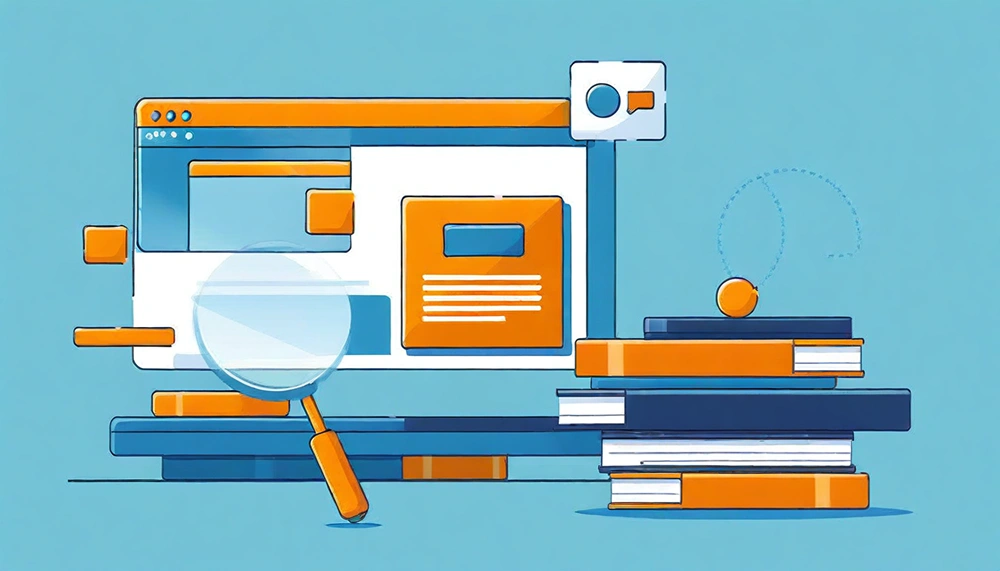Mastering Online Research: A Student’s Guide to Effective and Safe Internet Use
Online research should feel like a superpower. But for most students, it’s more like wading through digital quicksand—endless tabs, questionable sources, and distractions around every corner. The internet is an incredible resource, but only if you know how to wield it.
Without structure, you waste time. Without safety, you risk exposure to misinformation or worse. Here’s how to get it right.
How to Start Online Research the Right Way
Most students treat Google like a magic eight ball: type a question, click the first link, and hope for the best. That’s a problem. Research isn’t about finding a source—it’s about understanding a topic through multiple lenses. It’s about learning how to filter, assess, and synthesize.
Before you even begin searching, define your objective. What are you really trying to figure out? Are you gathering general background information, looking for empirical data, or building an argument? Precision here pays off later. When your goal is clear, your path through the noise becomes obvious.
Use Smarter Search Techniques
A lazy search query guarantees garbage results. To control the algorithm, you have to get tactical and learn Google Search operators, little tricks that filter and refine your queries. Use quotation marks to search exact phrases (“renewable energy adoption in Africa”), include site-specific queries like “site:.edu” for academic sources, and don’t be afraid to use Boolean logic. AND narrows, OR expands, and NOT (or minus signs) excludes what you don’t want.
Let’s say you’re writing about the effects of remote learning. Searching “impact of remote learning site:.gov” might lead you to policy reports. Searching the same with “site:.edu” can surface academic studies. Adding “PDF” helps you find whitepapers and full-text documents, not just article summaries.
Google Scholar is a better starting point than general search engines when academic rigor matters. But it’s not the only game in town. Dig through ProQuest, ERIC, JSTOR, PubMed, and the databases offered through your school. And don’t overlook library portals—many offer access to journals, ebooks, and citation tools.
Evaluate Sources Like a Cynic
The internet is full of opinions masquerading as expertise. Learning to differentiate between credible information and digital trash is non-negotiable before you actually cite the sources in your work..
Ask the hard questions: Who wrote this? Are they an authority on the subject, or are they just echoing someone else’s claims? Does the site have an editorial process or peer review system? Is it affiliated with an institution, or is it monetized by ads and affiliate links?
Pay attention to the tone and language. Serious sources are typically measured, transparent, and cite evidence. If something feels overly emotional, politically slanted, or sensational, it’s probably more opinion than fact. Fact-check claims, follow citations, and when in doubt, dig deeper into the author’s background. Don’t hesitate to use AI for accumulating different sources for comparison.
You should be especially careful when downloading something, whether it’s a study or a book. While sites that offer free material sound enticing, they often have issues with cloud security and hackers often infiltrate them, only to silently use them as honeypots for unsuspecting students.
Cyber threats don’t just stop at “credible”—think in terms of relevance and depth. A government site might be factual but outdated. A personal blog might offer fresh insights but lack empirical backing. Context matters.
Cross-Reference Relentlessly
One perspective is just a snapshot. Three or more give you a panorama. Cross-referencing isn’t just about accuracy—it’s about depth. It’s the difference between knowing what happened and understanding why it matters.
Say you’re writing about AI in education. A tech blog might praise innovation. An academic article might warn about bias. A teacher’s forum might highlight classroom realities. None are wrong, but each adds a layer.
When different sources align independently, your confidence in the information should increase. When they conflict, that’s even better—it shows you where the debate is, which is exactly where you want to focus if you’re doing meaningful research. Always verify facts, especially when you’re working with recent data or controversial topics.

Don’t Just Collect—Synthesize
Research is not a scavenger hunt. Too many students treat it like a point-and-click game: grab a source, yank a quote, move on. But understanding emerges when you engage with the material.
As you go through sources, take active notes. Don’t just copy—translate arguments into your own words. Ask questions: What’s the author’s purpose? How does this compare to what you already found? Where does it fit into your larger understanding? It’s not only great for learning, but lets you avoid plagiarism checkers, no matter their stringency.
Create summaries, mind maps, or even flashcards. Highlight contradictions. Draw conclusions. Research is about forming a coherent, defensible viewpoint, not assembling a list of URLs. You can then create a mock text and then expand it into an essay to create a more coherent, more distilled version of what you need to know.
Tools can help, but thinking is the core mechanic. Apps like Notion or Obsidian let you link concepts and tag ideas for retrieval. Zotero and Mendeley manage citations. AI tools can summarize or extract key points, but your critical thinking still matters most.
Understand Digital Literacy Beyond Surface-Level
Digital literacy isn’t optional. It’s the skill set that separates a passive scroller from a strategic researcher. The internet isn’t neutral—it’s curated, filtered, monetized, and designed to keep you inside feedback loops. Recognizing this is the first step toward navigating it.
Algorithms aren’t just suggesting content; they’re shaping your worldview. If you click on one biased article, the next five may reinforce that same angle. This builds cognitive bias over time, making it harder to accept opposing information. Social media platforms like TikTok use this same principle, only in a more aggressive manner.
Train yourself to explore outside your bubble. Read different formats—reports, interviews, studies, op-eds. Compare international vs local media coverage of the same event. Follow the money—who benefits if you believe this piece?
Also, learn how content is structured to manipulate you. Misleading headlines, out-of-context quotes, emotionally charged visuals—these are designed to trigger fast, uncritical reactions. Resist that. Pause. Ask: what’s the full story?
Use Tech to Your Advantage
You’re surrounded by distractions, but you also have access to powerful tools that can make your research cleaner, faster, and deeper.
Citation managers like Zotero and EndNote help you organize sources without having to dig for links later. Notion, Obsidian, or Roam Research let you build personal knowledge bases where you can connect research like a digital second brain. Browser extensions like Mercury Reader strip articles down to the core content. Readwise can help you remember what you read.
Don’t stop at tools for organization—use tech to sharpen your thinking. Summarization tools like Scholarcy or TLDR can help with comprehension, especially when skimming dense academic texts. Just don’t rely on them blindly—always verify the interpretation. Chrome extensions like Glasp let you highlight and annotate websites like a Kindle.
Even your browser choice matters. A clean setup, with minimal tabs and strong bookmark hygiene, reduces cognitive overload. Group your research tabs. Use extensions to freeze tab sessions. Work smart, not scattered.
Conclusion
There’s no hack that replaces experience. Every hour spent deep in the trenches of research—following threads, comparing sources, restructuring your thinking—is an hour invested in your intellectual toolbox.
Over time, you’ll develop instincts. You’ll spot bias faster. You’ll know where to look for the best information. You’ll waste less time. You’ll learn how to argue better, write clearer, and solve problems faster.
Treat your research time like training. Push yourself to read harder texts, chase less obvious leads, and go one step deeper than your classmates. That’s how you stop surviving research assignments and start owning them. Because in a world drowning in information, the ability to cut through noise and get to the truth is more valuable than ever.
About the Author:
Ryan Harris is a copywriter focused on eLearning and the digital transitions going on in the education realm. Before turning to writing full time, Ryan worked for five years as a teacher in Tulsa and then spent six years overseeing product development at many successful Edtech companies, including 2U, EPAM, and NovoEd.




